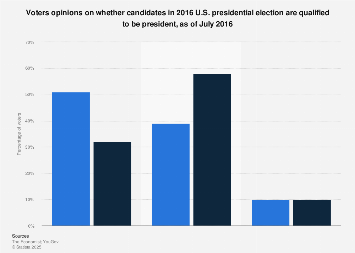

Partisans were also divided, with 27 percent of Republicans claiming that the Electoral College unfairly favors Democratic candidates, while 34 percent of Democrats claimed that it unfairly favors Republicans. Some felt that the current system unfairly favors small states (26 percent), while others argued that the Electoral College protects the interests of smaller states (50 percent) and ensures that diverse interests are represented in presidential elections (40 percent). Seventy percent agreed that switching to a national popular vote would dramatically change the outcome of American elections, though some prominent Electoral College commentators have disagreed. While the results could be classified as strong plurality support for electoral reform, respondents held different opinions about the potential ramifications of such a change. This raises the possibility that a once-rare electoral outcome may be becoming more common as America’s political landscape continues to evolve and polarize.ĭemocrats were more likely to oppose the Electoral College, with 68 percent expressing their preference for a national popular vote, compared with 54 percent of independents and 37 percent of Republicans. Before happening twice in just the 21st century, the phenomenon had only occurred two other times in our history - 18.

Bush) and 2016 (Donald Trump) elections resulting in a president who lost the popular vote but won the Electoral College. In contrast, 32 percent expressed a preference for the Electoral College mechanism, while 15 percent were “unsure.”Īs the data shows, abandoning the Electoral College system has become a more mainstream idea in recent years, with both the 2000 (George W. When asked whether it would be “in the best interest of the United States to keep the current Electoral College system or to adopt a national popular vote instead,” a small majority of 53 percent advocated for changing to a national popular vote. While we found that a small majority are in favor of abandoning the Electoral College for a national popular vote, there is relatively little agreement about the electoral implications of such a reform. In a recent survey, we asked a representative sample of 1,000 eligible voters to share their thoughts on the Electoral College, as well as their preferences for a national popular vote. This approach has turned some people off to the idea but nonetheless has remained a consistent alternative in the Electoral College conversation. The popular vote compact strategy avoids those obstacles by changing the law based solely on enough individual states agreeing. Were this to happen, the adopting states could effectively circumvent the Electoral College without undergoing the arduous process of amending the Constitution. It lacks the force of law because those states account for only 195 of the 270 electoral votes needed to secure the presidency, and the pact would not take effect until states whose votes total the winning number sign-on. To date, the National Popular Vote Interstate Compact has been adopted by 15 states - though not Florida - as well as Washington, D.C. What might such a change look like in practice? How might it affect future elections? We polled Americans in search of some answers. The outcome sparked renewed criticism of the Electoral College mechanism in some circles, and since then, five more states have committed to an interstate compact that would award all of their electoral votes to the winner of the national popular vote - regardless of how their state voted. In 2016, Donald Trump became the second presidential candidate in as many decades to win the Electoral College despite losing the national popular vote. Co-authored with Stephen Neely, associate professor at the University of South Florida’s School of Public Affairs, this article first appeared in the Tampa Bay Times and is republished with permission. In this piece, political science doctoral candidate Bethany Bowra explores Americans’ attitudes toward the Electoral College. As part of an op-ed series, FIU News shares the expertise and diverse perspectives of members of the university community.


 0 kommentar(er)
0 kommentar(er)
